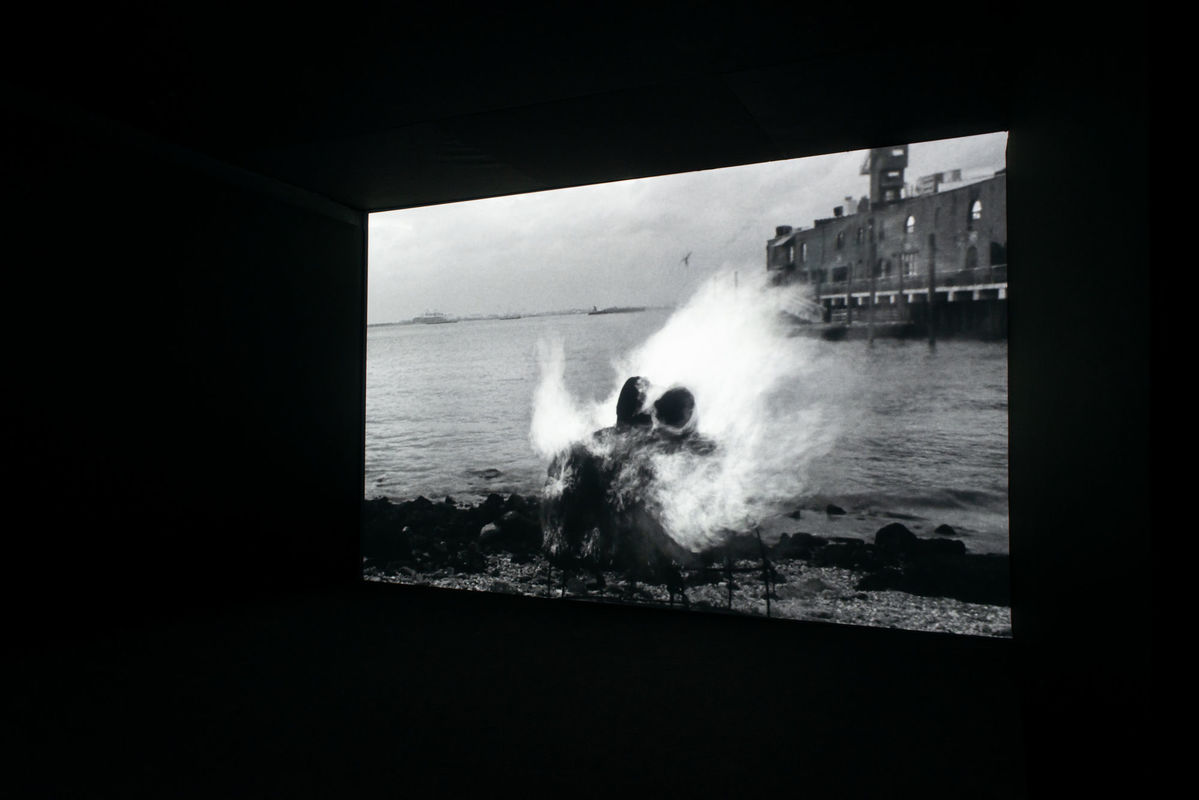
Simone Leigh e Madeleine Hunt-Ehrlich
Simone Leigh and Madeleine Hunt-Ehrlich have been working together for years as part of a loose group of largely Black, women artists, scholars, and other cultural producers, several of whom make an appearance in Conspiracy (2022).
Prior to this project the two engaged in the archive of the United Order of Tents – the oldest African American women’s group in the United States, established by formerly enslaved women in 1867. That involvement led to Hunt-Ehrlich’s “surrealist documentary” Spit on the Broom (2019), which sought to earmark the significance of the order, without revealing the secrets that helped them survive for over a century. This concern – how to talk about a history that is secret, and derives its power from that secrecy – is central to both these artists practices.
In Conspiracy, Leigh and Hunt-Ehrlich overlay beautifully rendered shots of the tools and processes of Leigh’s trade, with haunting vocalizations and narration drawn from Robert Farris Thompson’s Flash of the Spirit: African & Afro-American Art & Philosophy¹ and Zora Neale-Hurston’s Tell My Horse.² The diasporic breadth of the artists’ interests are made clear with each text discussing traditional practices in Central Africa and the Caribbean respectively. The voice of Deborah Anzinger, whose work is also featured in this exhibition, and canonical performance artist Lorraine O’Grady also make an appearance in the film.
A full apprehension of this conspiracy requires that you know who O’Grady is, that you have some sense of her significance for art history, and Black women’s place (or lack thereof) in it. You will also miss something if you don’t know about Ehrlich-Hunt’s ongoing exploration of Black women’s interiority and archives; her work on Martinican anti-colonial, feminist Suzanne Roussi-Césaire, for example. There is also something in Deborah Anzinger’s inclusion, her reading of Hurston, who was herself a diasporic lynchpin. If you recognize author Sharifa Rhodes-Pitts, another long-time co-conspirator, and know enough of her work to ken the significance of her inclusion you’ll have understood a bit more. The film taunts us, as neither Anzinger nor Rhodes-Pitts’ names appear in the credits. It is a conspiracy after all, if you know, you know.
You may seek to enroll yourself in these goings-on by getting to know, as I did. For example, I sought out the 1974 album by Jeanne Lee for which the film was named. And boy am I happy I did. What awaits you there? I won’t say. I’ve already named too many names. What I can tell you is, there’s a reason this is a film about labor. Until then, sit and watch that thing that has been saddled with all the value, that object more exalted than its makers, burn.
nicole smythe-johnson
Simone Leigh (Chicago, IL, USA, 1976. Lives in New York, USA) places her research at the crossings between gender and race, creating sculptures, videos, installations and social practices that center the interiority of the Black woman. Her sculpture work, based mainly in bronze and ceramics, creates a vocabulary from the femme body, elements and traditions from Africa and its diasporas. Leigh was awarded the Golden Lion at the Venice Biennale (2022) for best national participation. Her work was exhibited at important institutions such as the Institute of Contemporary Art (Boston, MA, USA), Solomon R. Guggenheim Museum (New York, USA), Whitney Biennial 2019 (New York, USA) and Tate Modern (London, UK).
Madeleine Hunt-Ehrlich (1987. Lives in New York, USA) is a filmmaker and artist who makes films concerned with the inner worlds of Black women. Her work has been screened all over the world including at the 2023 Berlinale, the 59th Venice Biennale (Italy), the Guggenheim Museum, the Whitney Museum of Art (New York, USA) and the Tate Modern (London, UK). Her films have been awarded special jury prize for best experimental film at Blackstar Film Festival and New Orleans Film Festival. She was named on Filmmaker magazine’s 2020 “25 New Faces of Independent Cinema List” and is the recipient of a 2023 Herb Alpert Award in film, 2022 Creative Capitol Award, a 2019 Rema Hort Mann Award, and a 2014 Princess Grace Award in film.
1. Robert Farris Thompson, Flash of the spirit: arte e filosofia africana e afro-americana (1984). São Paulo: Museu Afro-Brasil, 2011.
2. Zora Neale-Hurston, Tell my Horse (1938). New York: Harper Collins, 2008.

 Português
Português